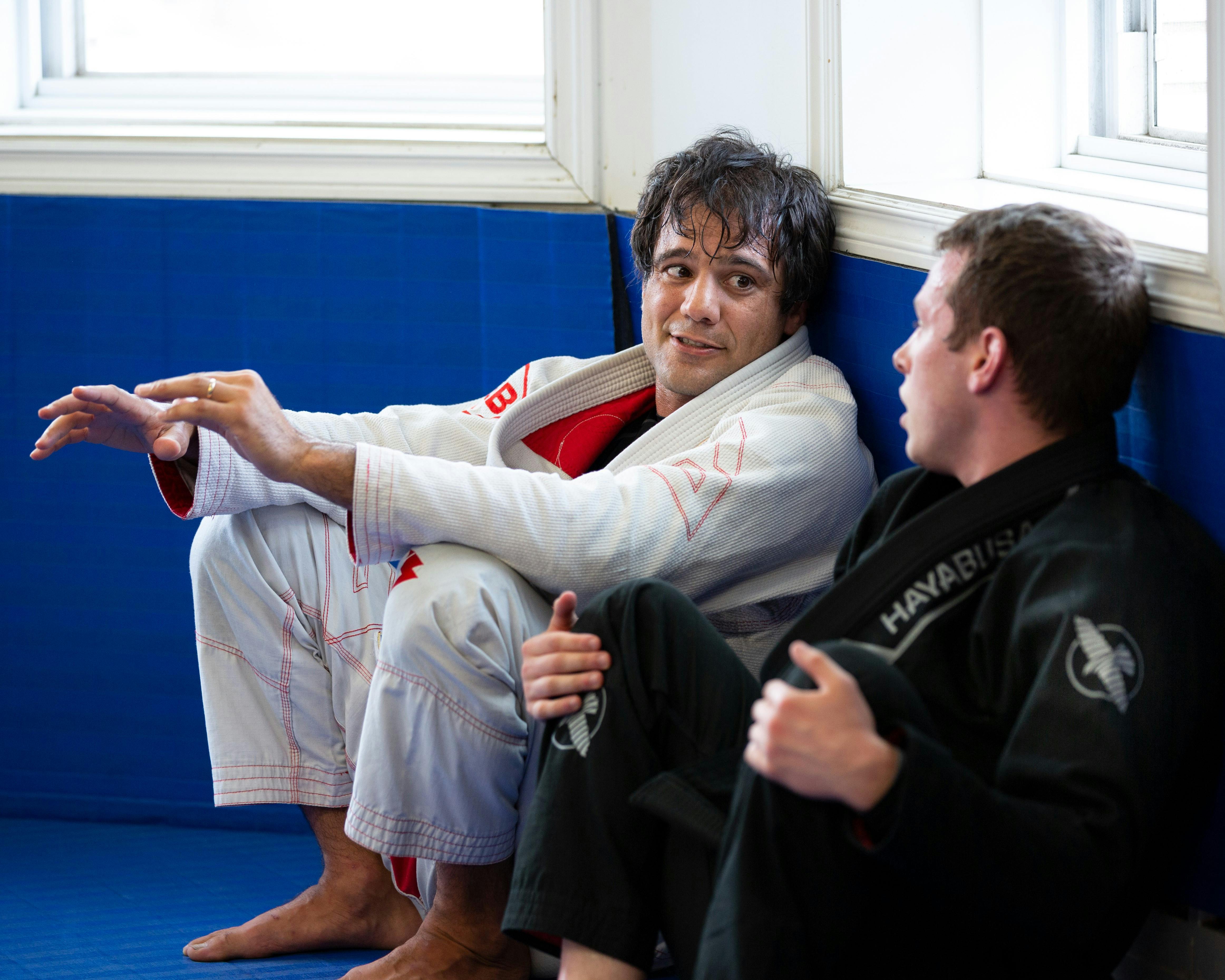You can call Bruno Fernades many things: Teacher, student, doctor, martial artist, public speaker. But there’s one role that may catch you off guard — cook.
Fernandes, head instructor at Gracie Barra Montreal and Assistant Professor for the Department of Ophthalmology and Pathology at Montreal’s McGill University, has an evolved view of teaching his Jiu Jitsu students.
He likens it to cooking.
“There's different spices, there's no right or wrong. As long as it’s good, you keep it,” he said. “If I do an armbar differently than someone else, the proof is in the pudding. If my armbar works, you're not going to tell me I’m wrong. And likewise, if a student is doing something differently than the way I show him and it’s working, I’m not going to go, ‘Hey man, that’s not the way I showed you.’ I’m going to stop and look and say, ‘OK, why is that thing working for him that way and not the way I do it?’ Observing and thinking and planning, you make more out of the time that you spend on the mats.”
The recipe for Fernandes’ life success has been a healthy mix of diligence, discipline, and more importantly, support. Even while in medical school and later while completing residency, Jiu Jitsu was a constant in his life. He was winning or placing in many of the World, Pan-American, and Brazilian championship tournaments he entered during that time.

“My father was super supportive of my training,” said Fernandes, who trains Georges St-Pierre and promoted him to black belt in 2008. “I was living like two blocks away from the gym. I was living at home, I had no bills to pay, I didn’t have any kids to raise. I was never super wealthy, but my family was supporting me in a way where I didn’t need to work.”
His daily routine was consistent. He’d be off to school in the morning, returning in the evening. As soon as he arrived home, he’d grab his gi and go straight to the gym to train Jiu Jitsu. He typically drilled for an hour, but if he was pressed for time, Fernandes would do three, 10-minute rounds with no breaks and then head home.
“Having a supportive environment around you is super important and unfortunately a lot of people can’t control that, but if you do have it, you have to acknowledge it and do your part,” he said. “You can’t take that for granted and waste all that support that you've been given.”
In addition to a healthy appreciation of the support he received from those around him, Fernandes also learned how to embrace challenges. Whether on or off the mat, he learned the value of facing hardships and doing what he could to overcome it.
“Eventually you realize that’s what makes you better,” Fernandes said. “So when you don’t have that hard session or you don’t have a moment that really challenges you or frustrates you, that’s when you get pissed. That’s when you’re like, man, what did I come to do? I didn’t get anything out of that training today. So you start embracing and looking for the moments that you fail. It’s like that cliche of stepping out of your comfort zone, when things get too quiet, you have to shake it up a bit otherwise you stagnate.”

Of course I want to win, but it’s what I get preparing for the tournament that is my reward


Possessing an advanced level of experience and the desire to continue practicing for decades to come, Fernandes has altered his approach to Jiu Jitsu. Growing up, he was fueled by winning and proving to others he belonged. Eventually, it became less about competing with others and more about improving himself and those around him at his own pace.
“I compete like once a year, if that much, and if I was able to [have] a good training camp, be there with my weight and no injuries, I feel content already,” he said. “Of course I want to win, but it’s what I get preparing for the tournament that is my reward.”
Fernandes was introduced to Jiu Jitsu as an 11-year-old kid in Rio de Janeiro. His father had friends who were black belts in Jiu Jitsu, so when the time came to pick a martial art, Jiu Jitsu was an obvious choice. He’s been at it for more than three decades now.
He jokes at the beginning of his journey into Jiu Jitsu, he always told people he was training Judo because at that time, Jiu Jitsu wasn’t very popular. He grew tired of explaining the difference between the two disciplines. That said, he was hooked from the start.
“I was more of a swimmer before that, but after a few years, I started liking Jiu Jitsu more and I dropped swimming,” he said. “I focused on Jiu Jitsu as my primary sport.”
It’s safe to say that focus has yet to fade.


